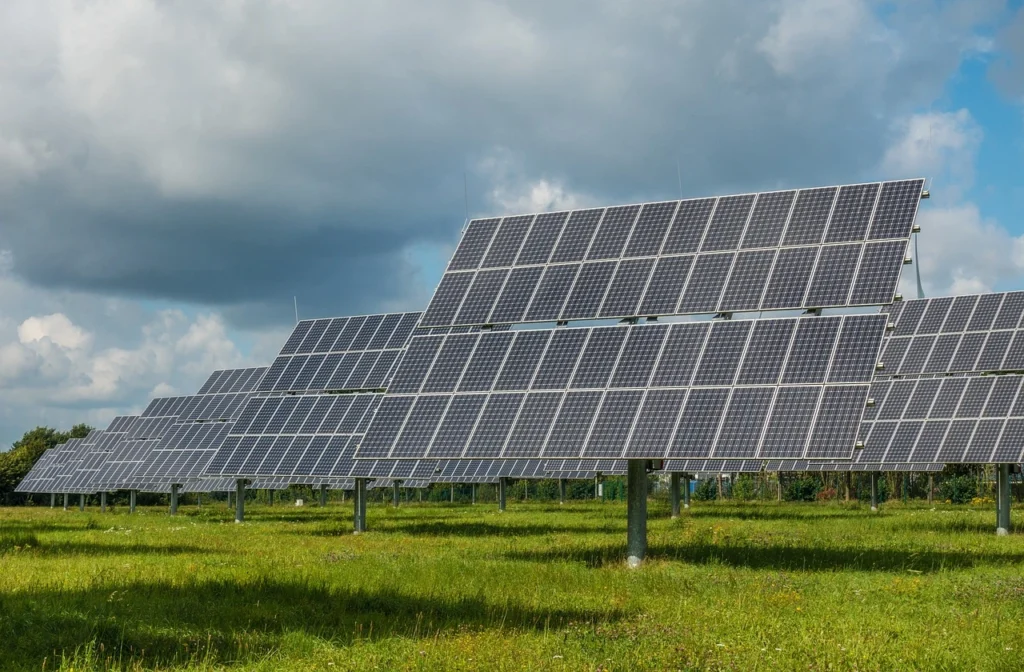Borosil Renewables Ltd, a leading manufacturer of solar glass in India, has been navigating a challenging yet promising business environment. The company has strategically positioned itself to capitalize on the growing demand for solar modules while tackling industry-wide challenges such as pricing pressures, international competition, and policy changes. In this article, we analyze the company’s growth strategy, future outlook, and potential challenges.

Growth Strategy
Borosil Renewables has adopted a multi-pronged strategy to sustain and expand its market presence:
1. Capacity Expansion
The company is aggressively increasing its production capacity to cater to the rising demand for solar glass in India. The current solar glass capacity in India is approximately 2,300 tons per day (15 GW), which is expected to double to 4,600 tons per day (30 GW) by the end of 2025. Further expansion of 11.25 GW is also planned, taking the total to 41.25 GW (6,300 tons per day) by 2026.
2. Leveraging Government Policies
The imposition of anti-dumping duties (ADD) on solar glass imports from China and Vietnam has created a favorable environment for domestic manufacturers. Borosil Renewables is expected to benefit from this move, which ensures fair competition and stabilizes selling prices.
3. Technological Advancements & Product Development
The company invests heavily in R&D (₹6 crore annually) to improve product efficiency and innovation. The focus is on developing high-performance solar glass that meets global quality standards, ensuring better acceptance in both domestic and international markets.
4. Renewable Energy Investments
Borosil is reducing operational costs through sustainable energy initiatives. The company is investing in a 16.5 MW solar-wind hybrid captive power plant, which is expected to generate annual savings of ₹17 crore.
Future Outlook
The demand for solar glass is projected to grow rapidly, driven by India’s renewable energy goals. Key trends shaping the future of Borosil Renewables include:
1. Growing Solar Installations
India is expected to witness a massive surge in solar installations, reaching 40–50 GW annually in the coming years, compared to 15 GW last year. This will drive demand for solar glass, especially with the Approved List of Models and Manufacturers (ALMM) mechanism boosting local module production.
2. Strengthening the Domestic Supply Chain
With imports currently occupying 55–60% of India’s solar glass consumption, there is significant scope for import substitution. As domestic capacity expands, reliance on foreign suppliers will decline, enhancing supply chain stability.
3. European Market Prospects
The European solar glass industry is undergoing changes, with the EU mandating that 25% of renewable energy components must be manufactured within Europe. While Borosil’s German subsidiary has temporarily halted operations due to weak demand, a policy shift could revive European solar manufacturing, creating new opportunities.
4. Financial Strength & Fundraising
The company has successfully raised ₹57.66 crore through a preferential issue, with ₹100 crore contributed by promoters. The funds will be utilized for expansion and working capital needs.
Challenges Ahead
Despite a strong growth trajectory, Borosil Renewables faces several challenges:
1. Price Pressure & Chinese Competition
While the ADD on Chinese and Vietnamese imports provides some relief, Chinese manufacturers could circumvent duties by rerouting exports through Malaysia or other countries. Continuous monitoring and government intervention will be necessary to prevent dumping.
2. Profitability Concerns
The company posted a ₹8.64 crore net loss in Q3 FY25 due to lower selling prices. While prices have started improving, sustaining a target selling price of ₹140 per mm² (₹56,000 per ton) will be crucial for profitability.
3. Operational Risks in Germany
Borosil’s German subsidiary is facing operational challenges due to weak demand. Losses were ₹8 crore per month, but cost-cutting measures have reduced them to ₹4 crore per month. The company is waiting for German government policy decisions before making further moves.
4. High Capital Intensity
The solar glass industry is capital-intensive, requiring continuous investment. Each glass furnace needs rebuilding every five years, adding to recurring costs. The company needs to balance debt and equity to fund expansions without overleveraging.
Conclusion
Borosil Renewables Ltd is well-positioned to capitalize on the solar boom, supported by government policies, technological advancements, and capacity expansion. While pricing pressures and international competition remain challenges, the company’s strategic initiatives and policy tailwinds should drive long-term growth and profitability.
